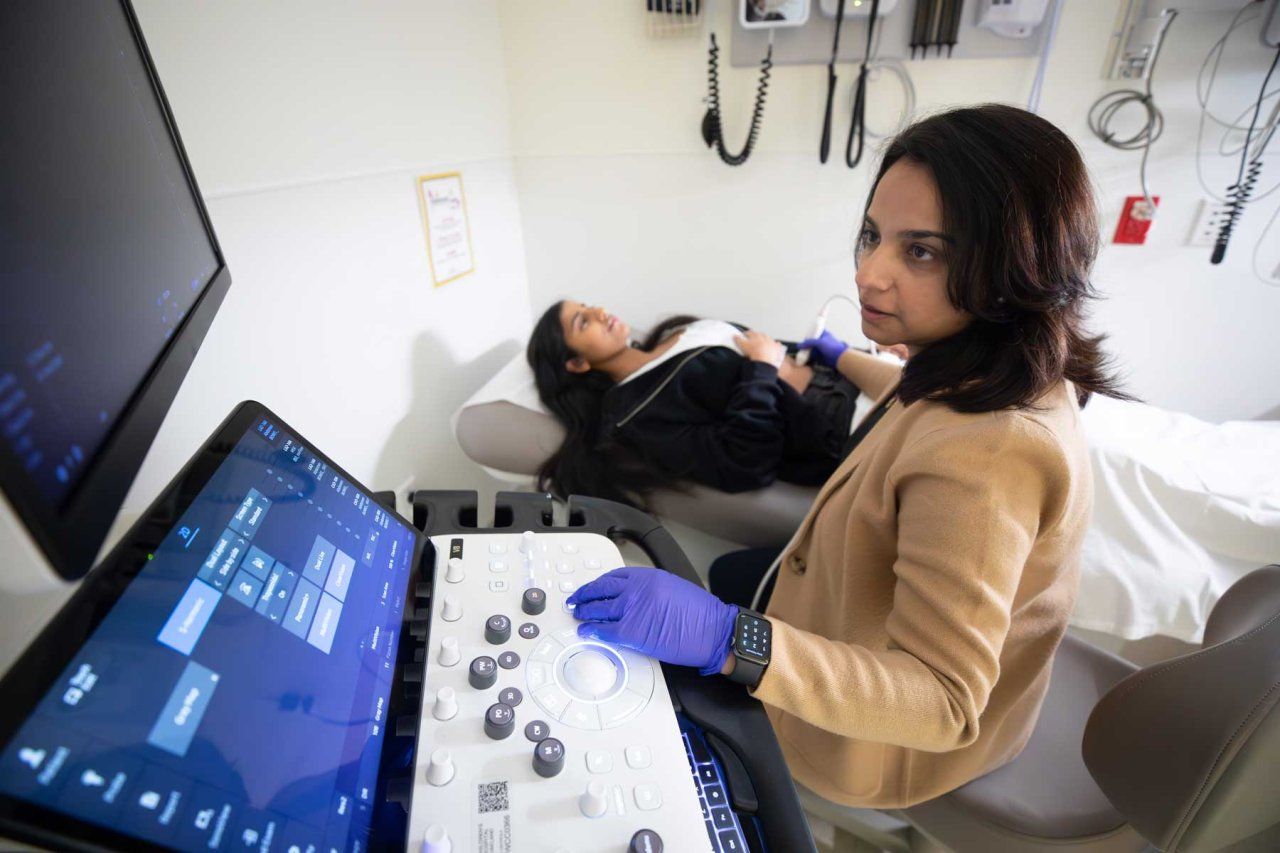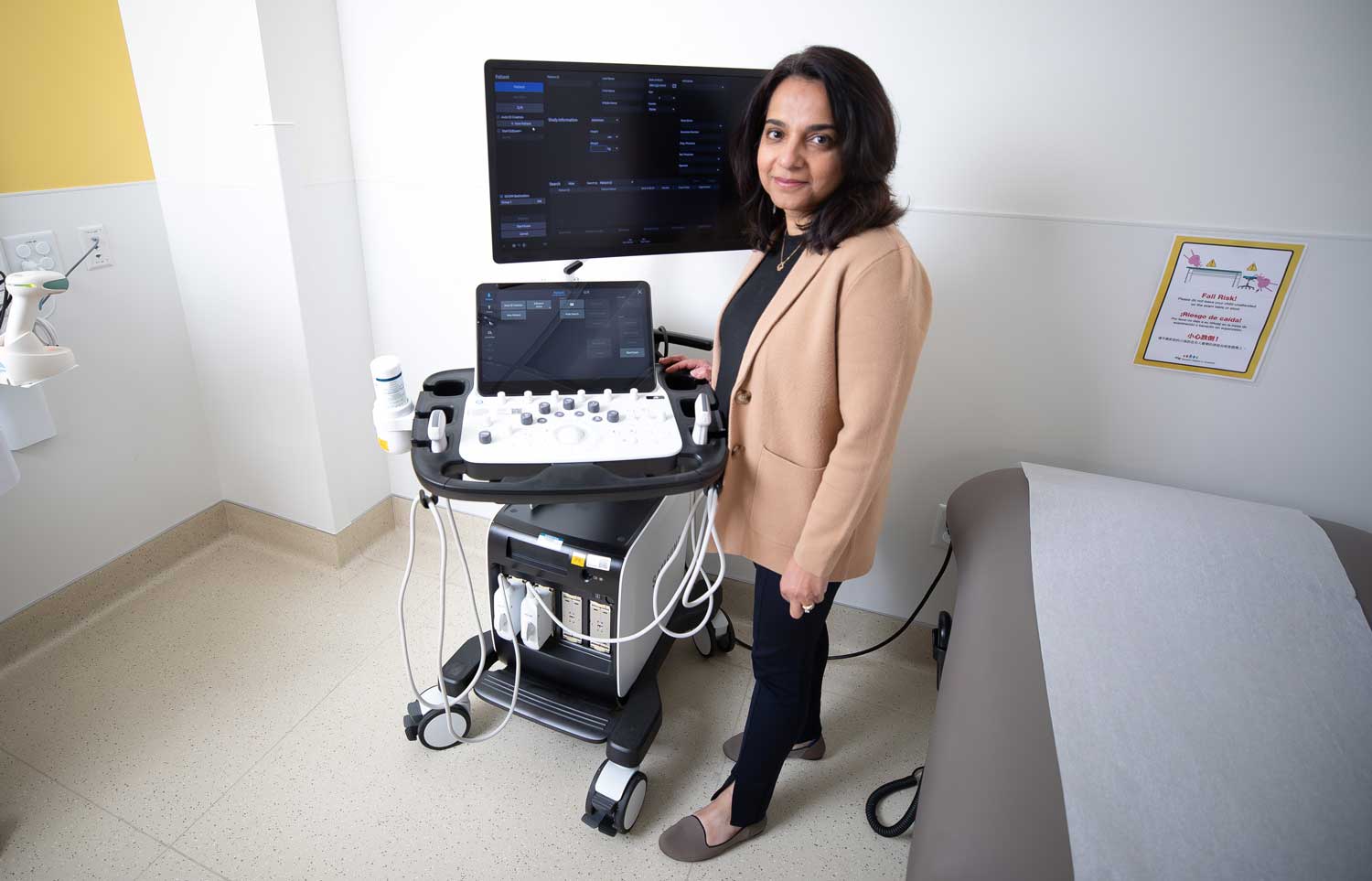
Dhiya Ravikumar would love to never see another MRI or endoscope again. Soon, the long-time UCSF Health patient will see a lot less of them, now that UCSF Benioff Children's Hospitals is about to offer intestinal ultrasound at its Walnut Creek Outpatient Center .
Dhiya was diagnosed with Crohn's disease at age 10 and had a long journey to find the right treatment, including medical imaging and hospitalization. Recently she tried out intestinal ultrasound, a noninvasive method of monitoring Crohn's and ulcerative colitis that isn't available at most U.S. children's hospitals.
"MRI is claustrophobic and with the endoscopy, you have to drink all this liquid and go under anesthesia, which is scary," said Dhiya. "But the ultrasound was convenient and painless, and we could see results on the screen right away."
There's no prep needed for the imaging, no loud machines, no IV starts - and you can do it right in the exam room."
Starting this summer, UCSF Benioff Children's will be one of only a handful of children's hospitals on the West Coast to offer intestinal ultrasound to children with inflammatory bowel disease (IBD). IBD comprises Crohn's disease and ulcerative colitis and often involves diarrhea, rectal bleeding, abdominal pain and weight loss.
UCSF Health began offering intestinal ultrasound to adult patients with IBD in 2023, becoming the first hospital in the Western U.S. to do so. Since then, the program has expanded to a handful of young adults who were diagnosed with gastrointestinal disease as children.
"It's been so helpful to patients and their families - there's no prep needed for the imaging, no loud machines, no IV starts - and you can do it right in the exam room," said Sabina Ali , MD, medical director of the Inflammatory Bowel Disease Program at UCSF Benioff Children's Oakland. "It also helps to keep wait times down since there's next to no set-up time."

The intestinal ultrasound will be used both for patients who need frequent monitoring and those who need urgent evaluation or a sudden change in treatment. Patients with IBD, at times, must go through different medications and nutritional changes before finding the treatment that works best long term.
For her part, Dhiya is relieved that there will soon be an easier and faster way to monitor her condition, leaving her more time to do what she loves most: play tennis.
"When I was really sick, I had no energy for a game of tennis," Dhiya said. "Now I'm on my school team. It's a relief to know it will be even easier to keep track of my condition so I can just live my life."






